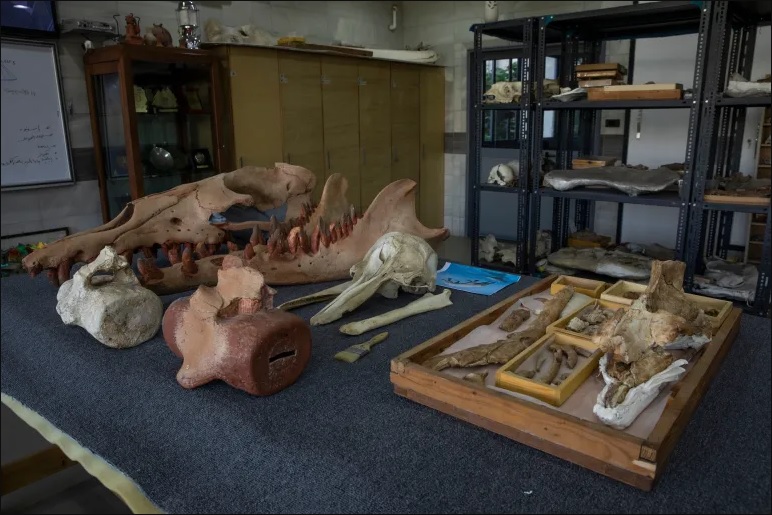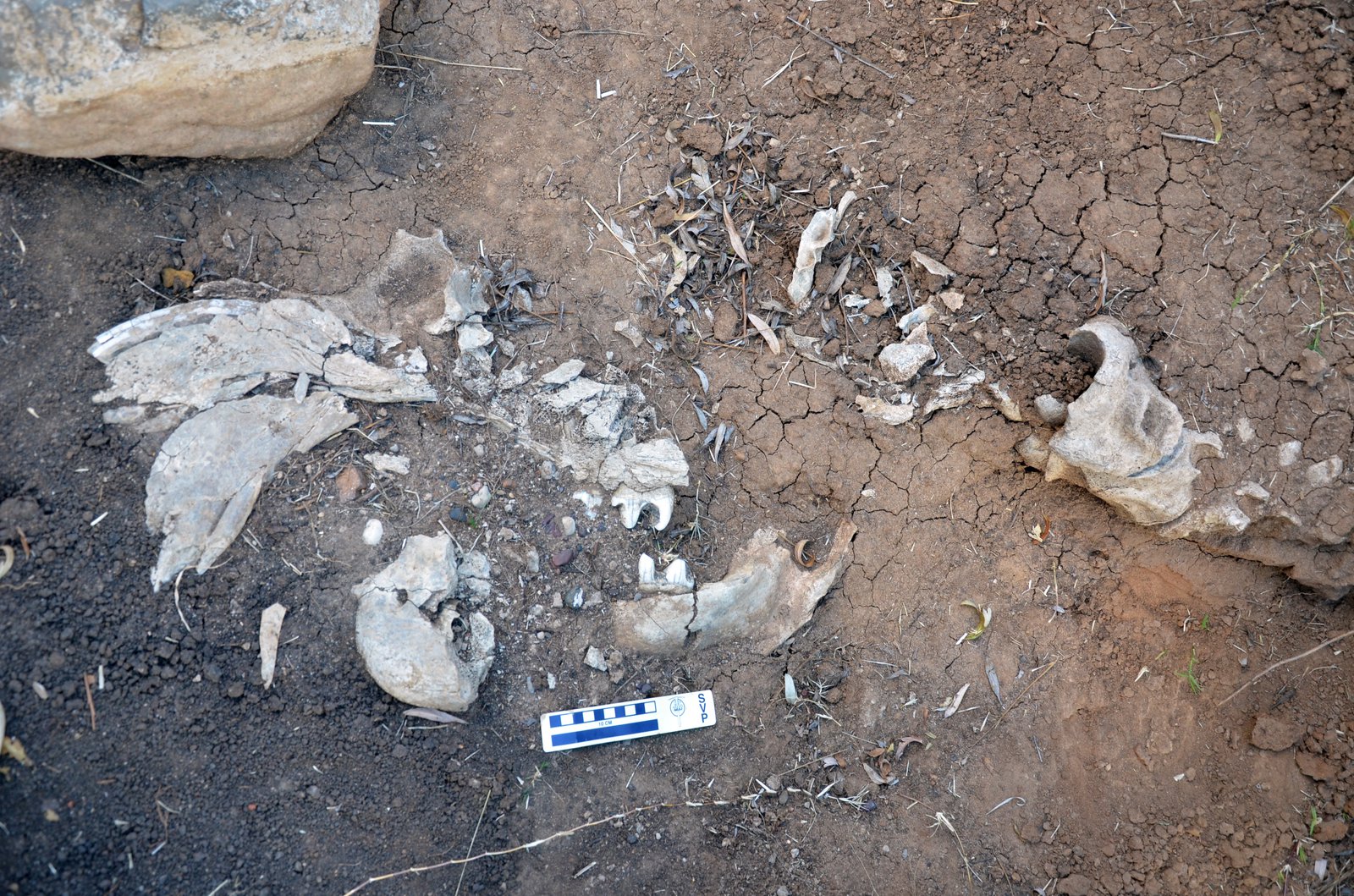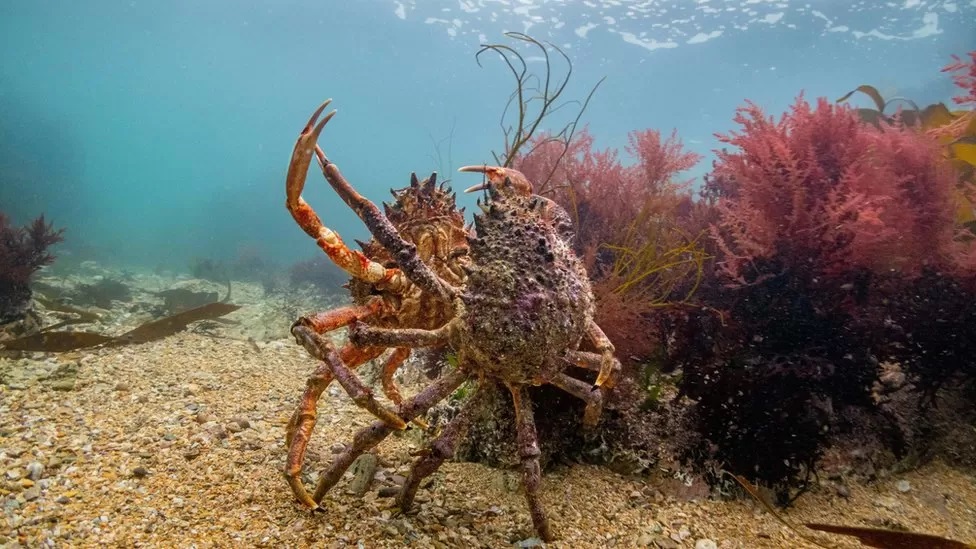Fossil of land-roaming whale species found in Egypt
Egyptian scientists say the fossil of a four-legged prehistoric whale, unearthed over a decade ago in the country’s Western Desert, is that of a previously unknown species. The creature, an ancestor of the modern-day whale, is believed to have lived 43 million years ago. The prehistoric whale, known as semi-aquatic because it lived both on land and sea, sported features of an accomplished hunter, the team’s leading paleontologist, Hesham Sallam, told The Associated Press - features that make it stand out among other whale fossils.





